
Hendrick hopes rough racing settles down after Chase Elliott suspension
Rick Hendrick fully supports Chase Elliott as he returns from a one-race suspension for deliberately wrecking Denny Hamlin, but the team owner believes on-track aggression has gotten out of control this season and NASCAR sent a message by parking the superstar
1970-01-01 08:00

5 biggest surprises in NBA Draft history
Often the picks at the top of the NBA Draft come into focus well before draft night. But then there are those picks that no one saw coming.The 2023 NBA Draft is nearly two weeks away. So, now is a perfect time to look back in time and reexamine some of the biggest surprises in NBA Draft history....
1970-01-01 08:00

Pat Robertson dies at 93; founded Christian Broadcasting Network, Christian Coalition
Pat Robertson, a religious broadcaster who turned a tiny Virginia station into the global Christian Broadcasting Network, tried a run for president and helped make religion central to Republican Party politics in America through his Christian Coalition, has died. He was 93. Robertson's death Thursday was announced by his broadcasting network. No cause was given. Robertson’s enterprises also included Regent University, an evangelical Christian school in Virginia Beach; the American Center for Law and Justice, which defends the First Amendment rights of religious people; and Operation Blessing, an international humanitarian organization. But for more than a half-century, Robertson was a familiar presence in American living rooms, known for his “700 Club” television show, and in later years, his televised pronouncements of God’s judgment on America for everything from homosexuality to the teaching of evolution. The money poured in as he solicited donations, his influence soared, and when he moved directly into politics by seeking the GOP presidential nomination in 1988, he brought a huge following with him. Robertson pioneered a now-common strategy of courting Iowa’s network of evangelical Christian churches, and finished in second place in the Iowa caucuses, ahead of Vice President George H.W. Bush. At the time, Jeffrey K. Hadden, a University of Virginia sociologist and a Robertson biographer, said Robertson's masterstroke was insisting that three million followers across the U.S. sign petitions before he would decide to run. The tactic gave him an army. ″He asked people to pledge that they’d work for him, pray for him and give him money,” Hadden told The Associated Press in 1988. ″Political historians may view it as one of the most ingenious things a candidate ever did.″ Robertson later endorsed Bush, who won the presidency. Pursuit of Iowa’s evangelicals is now a ritual for Republican hopefuls, including those currently seeking the White House in 2024. Robertson started the Christian Coalition in Chesapeake in 1989, saying it would further his campaign’s ideals. The coalition became a major force in Republican politics in the 1990s, mobilizing conservative voters through grass-roots activities. By the time of his resignation as the coalition's president in 2001 — Robertson said he wanted to concentrate on ministerial work — his impact on both religion and politics in the U.S. was “enormous,” according to John C. Green, an emeritus political science professor at The University of Akron. Many followed the path Robertson cut in religious broadcasting, Green told the AP in 2021. In American politics, Robertson helped “cement the alliance between conservative Christians and the Republican Party.” Marion Gordon “Pat” Robertson was born March 22, 1930, in Lexington, Virginia, to Absalom Willis Robertson and Gladys Churchill Robertson. His father served for 36 years as a U.S. Representative and U.S. Senator from Virginia. After graduating from Washington and Lee University, he served as assistant adjutant of the 1st Marine Division in Korea. He received a law degree from Yale University Law School, but failed the bar exam and chose not to pursue a law career. Robertson met his wife, Adelia “Dede” Elmer, at Yale in 1952. He was a Southern Baptist, she was a Catholic, earning a master’s in nursing. Eighteen months later, they ran off to be married by a justice of the peace, knowing neither family would approve. Robertson was interested in politics until he found religion, Dede Robertson told the AP in 1987. He stunned her by pouring out their liquor, tearing a nude print off the wall and declaring he had found the Lord. They moved into a commune in New York City’s Bedford-Stuyvesant neighborhood because Robertson said God told him to sell all his possessions and minister to the poor. She was tempted to return home to Ohio, “but I realized that was not what the Lord would have me do ... I had promised to stay, so I did,” she told the AP. Robertson received a master’s in divinity from New York Theological Seminary in 1959, then drove south with his family to buy a bankrupt UHF television station in Portsmouth, Va. He said he had just $70 in his pocket, but soon found investors, and CBN went on the air on Oct. 1, 1961. Established as a tax-exempt religious nonprofit, CBN brought in hundreds of millions, disclosing $321 million in “ministry support” in 2022 alone. One of Robertson’s innovations was to use the secular talk-show format on the network’s flagship show, the “700 Club,” which grew out of a telethon when Robertson asked 700 viewers for monthly $10 contributions. It was more suited to television than traditional revival meetings or church services, and gained a huge audience. “Here’s a well-educated person having sophisticated conversations with a wide variety of guests on a wide variety of topics,” said Green, the University of Akron political science professor. “It was with a religious inflection to be sure. But it was an approach that took up everyday concerns.” His guests eventually included several U.S. presidents — Jimmy Carter, Ronald Reagan and Donald Trump. At times, his on-air pronouncements drew criticism. He claimed that the terrorist attacks that killed thousands of Americans on Sept. 11, 2001 were caused by God, angered by the federal courts, pornography, abortion rights and church-state separation. Talking again about 9-11 on his TV show a year later, Robertson described Islam as a violent religion that wants to “dominate” and “destroy,” prompting President George W. Bush to distance himself and say Islam is a peaceful and respectful religion. He called for the assassination of Venezuelan President Hugo Chavez in 2005. Later that year, he warned residents of a rural Pennsylvania town not to be surprised if disaster struck them because they voted out school board members who favored teaching “intelligent design” over evolution. And in 1998, he said Orlando, Florida, should beware of hurricanes after allowing the annual Gay Days event. In 2014, he angered Kenyans when he warned that towels in Kenya could transmit AIDS. CBN issued a correction, saying Robertson “misspoke about the possibility of getting AIDS through towels.” Robertson also could be unpredictable: In 2010, he called for ending mandatory prison sentences for marijuana possession convictions. Two years later, he said on the “700 Club” that marijuana should be legalized and treated like alcohol because the government’s war on drugs had failed. Robertson condemned Democrats caught up in sex scandals, saying for example that President Bill Clinton turned the White House into a playpen for sexual freedom. But he helped solidify evangelical support for Donald Trump, dismissing the candidate's sexually predatory comments about women as an attempt “to look like he’s macho.” After Trump took office, Robertson interviewed the president at the White House. And CBN welcomed Trump advisers, such as Kellyanne Conway, as guests. But after President Trump lost to Joe Biden in 2020, Robertson said Trump was living in an “alternate reality” and should “move on,” news outlets reported. Robertson’s son, Gordon, succeeded him in December 2007 as chief executive of CBN, which is now based in Virginia Beach. Robertson remained chairman of the network and continued to appear on the “700 Club.” Robertson stepped down as host of the show after half a century in 2021, with his son Gordon taking over the weekday show. Robertson also was founder and chairman of International Family Entertainment Inc., parent of The Family Channel basic cable TV network. Rupert Murdoch’s News Corp. bought IFE in 1997. Regent University, where classes began in Virginia Beach in 1978, now has more than 30,000 alumni, CBN said in a statement. Robertson wrote 15 books, including “The Turning Tide” and “The New World Order.” His wife Dede, who was a founding board member of CBN, died last year at the age of 94. The couple had four children, 14 grandchildren and 24 great-grandchildren, CBN said in a statement. ____ Former Associated Press reporter Don Schanche contributed to this story.
1970-01-01 08:00
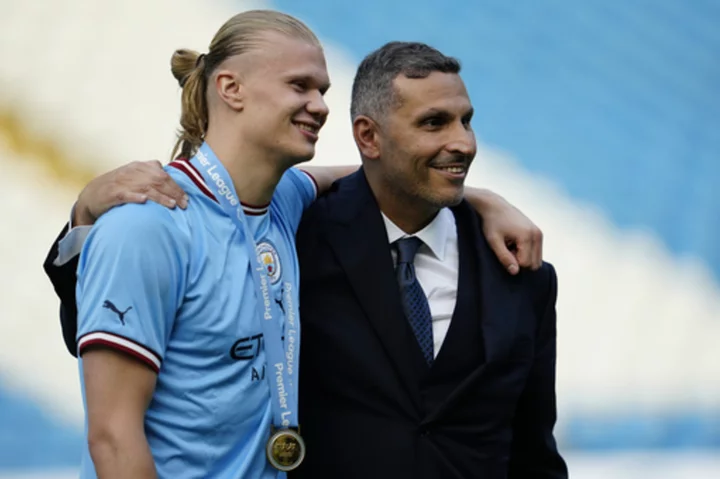
Man City, Inter Milan meet in Champions League final of contrasting club history
Manchester City enters the Champions League final as a modern soccer and financial heavyweight compared to Inter Milan
1970-01-01 08:00
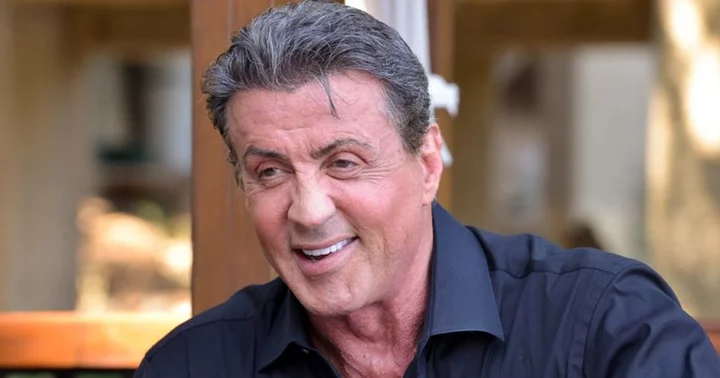
Sylvester Stallone's iconic smirk and slur are a result of a catastrophic mistake when he was born
There is a distinct audience for Stallone's iconic smile but not many are aware of the tragic secret behind it
1970-01-01 08:00
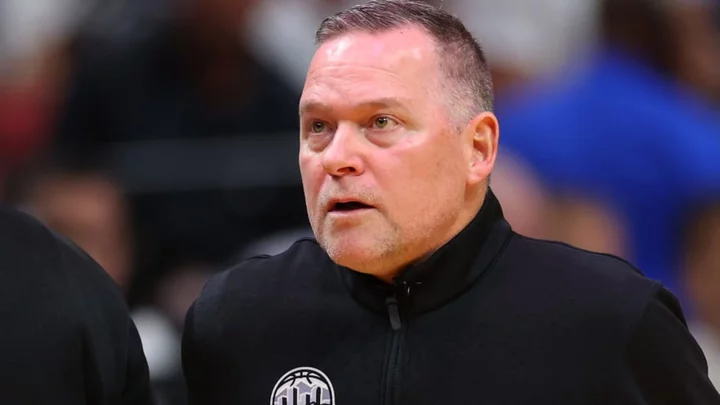
Michael Malone Less Than Impressed With Miami Heat's Press Room
Michael Malone: "What a bad press room."
1970-01-01 08:00

‘The Crowded Room’ star Tom Holland once mistook co-star Mark Wahlberg’s gift as a 'self-pleasure' device
Mark Wahlberg gifted Tom Holland a massage gun after discussing about health and fitness
1970-01-01 08:00
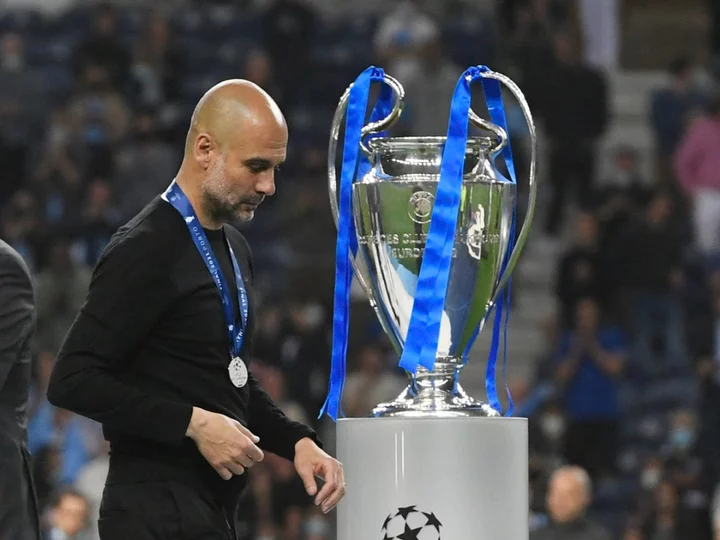
How to cure ‘City-itis’? Pep Guardiola has new template to end Champions League woe
Pep Guardiola was back in an old haunt and he wanted a picture to mark the occasion. He roped in an old friend. It was in the Allianz Arena in Munich and he had Manchester City’s CEO Ferran Soriano alongside him. City’s run of nine consecutive victories had actually ended but a 1-1 draw against Bayern Munich had clinched a 4-1 aggregate triumph. Even for a man who has achieved as much as Guardiola, it was worth getting a memento. Guardiola had three seasons with Bayern, reaching the Champions League semi-finals in each. He has spent much of his seven years at City arguing that the aristocracy of European football have an inherent advantage in the Champions League, some kind of institutional memory that clicks in. City’s possible route to glory now is paved with the past: Bayern in the last eight, the 14-time winners Real Madrid in the last four, Inter Milan in the final. Whether Helenio Herrera, Sandro Mazzola and Giacinto Facchetti will prove much of an advantage in Istanbul remains to be seen. Study the last 12 years, after all, and Inter, with a solitary previous quarter-final appearance, are the rank outsiders on Saturday. But perhaps City have always seen themselves as the outsiders who are desperate to be part of the club: the club of European Cup winners. When Guardiola has said he would rather win the Premier League than the Champions League, or that it is harder to – and he has made both claims over the years – it has scarcely rung true. There are many City supporters who would rather get the better of Manchester United than clubs from Milan, Munich or Madrid, but for manager and hierarchy alike, it has felt like the holy grail. It has been 15 years since Sheikh Mansour’s takeover, 12 since the modern City made their Champions League bow. There are two pertinent comparisons among suddenly moneyed clubs: Chelsea who – unlike the City of 2008 – were already in Europe’s elite competition when bought and who, after a similar assortment of agonising near-misses, won the Champions League nine years into a new regime; and Paris Saint-Germain, who reached the final the year before City but have otherwise been the wrong sort of role models. The serial French champions have five last-16 exits in the last seven seasons; since signing Lionel Messi, they have not reached the quarter-finals. Their emphasis on superstars, on buying success, has been thoroughly discredited. City have taken another approach. Indeed, an examination of its pillars – hiring and supporting a world-class manager, having a defined style of play with a clear commitment to teamwork, astute recruitment over several seasons and an environment where footballers improve – would seem the basis of a Champions League-winning campaign; it was for Liverpool in 2019, after all. And yet recent years have seen other methods prevail, whether mid-season managerial appointments like Roberto Di Matteo, Hansi Flick and Thomas Tuchel having an immediate impact or Real’s innate Realness, their preternatural sense of purpose that Guardiola feared, and amiable man-managers in Carlo Ancelotti and Zinedine Zidane taking the trophy back to the Bernabeu. City, in contrast, accumulated years of hard-luck stories, near-misses and missteps under Guardiola, a strange combination of the away-goals rule, VAR, cruel late drama and “overthinking”, a narrative so established the Catalan references it, costing them. For City, 12 years of the Champions League divides into three phases and three reigns. There was the underachievement under Roberto Mancini, with two tough group-stage draws and a disappointing campaign followed by a disastrous one; in 2011-12, the Italian alleged Carlos Tevez refused to come off the bench in Munich, but the real nadir was a winless 2012-13; along with fraying relations with his players and employers, Mancini’s wretched record in Europe helped seal his fate. Manuel Pellegrini started the run of 10 successive appearances in the knockout stages. He twice beat Bayern in the group, twice lost to Barcelona in the last 16, when a flurry of City red cards hinted at defensive struggles amid over-attacking tactics and an inability to cope with the best, and once ended up apologising to the people of Sweden after an intemperate criticism of referee Jonas Eriksson. The first time City drew Barcelona it was in part because of an embarrassing miscalculation by Pellegrini: leading 3-2 at Bayern in the last group game, he took off Sergio Aguero without realising an extra goal would have seen City top the pool and avoid the favourites. Pellegrini later steered City to the previously uncharted waters of the semi-finals in 2016, only to go out with a whimper to Real; after being outclassed by Barcelona, it felt like a sign that an inferiority complex remained. But at least Pellegrini’s three Champions League exits were to La Liga’s duopoly. Guardiola’s first five were either to Ligue Un sides (Monaco in 2017 and Lyon three years later) or clubs who finished 25, 27 and 19 points below them in the Premier League in the respective seasons (Liverpool in 2018, Tottenham in 2019 and Chelsea in the 2021 final). Indeed, when comparatively unfancied sides overachieved in the Champions League, there was often a common denominator: they eliminated City en route. The “City-itis” former manager Joe Royle diagnosed in the 1990s – the sense that anything that could go wrong, would, and often in tragicomic circumstances – felt eradicated in the Premier League, but not the Champions League. There was the infamously disallowed Raheem Sterling “winner” against Tottenham – as Fernando Llorente’s hip-goal, with the suspicion the ball had brushed his hand, instead proved decisive; it also followed an Aguero penalty miss in the first leg. There were the two-goal leads City had and lost, to Monaco and then to Real last season. There was the Rodrygo double in the Bernabeu last term, with two goals in as many minutes. There was Liverpool’s destructive blitz of three goals in 19 minutes at Anfield and Guardiola’s self-destructive exit in the second leg, sent off for protesting about a Leroy Sane goal that was chalked off. There were more contentious calls: perhaps Moussa Dembele fouled Aymeric Laporte before he put Lyon 2-1 up. There was Kevin de Bruyne’s fractured nose and eye socket after Antonio Rudiger’s bloodcurdling challenge in Porto. There were the misses: Sterling against Lyon and against Chelsea, Jack Grealish against Real. There was the recurring theme of City getting caught on the counterattack: by Monaco, then Liverpool, then Spurs. There were the ever-present issues of Guardiola’s choices backfiring: Laporte at left-back and Ilkay Gundogan off the right wing at Anfield, De Bruyne on the bench away at Tottenham, no defensive midfielder versus Chelsea and, the worst of the lot, three centre-backs in an overly defensive team who faced Lyon. That was a one-off game and City have lost a lone two-legged tie in four seasons; even then, they were leading after 180 minutes – if not injury time – against Real. But Lyon can assume an almost disproportionate importance. City are unbeaten in 26 home Champions League games, scoring 85 goals; their last defeat was to Lyon. Otherwise, they have turned their groups into processions, topping the pool in their last six seasons. They have often been prolific: sometimes even in ties that brought their elimination. Arguably, over Guardiola’s seven seasons, they have had only had two remotely emphatic exits: to Lyon and Liverpool. Tales of what might have been have abounded. Yet, as rivals could point out, there is a still greater one. City were given a two-year Champions League ban by Uefa in February 2020, it was overturned by the Court of Arbitration for Sport five months later because many of their alleged breaches of financial fair play were not established or time-barred; they had been previously sanctioned. The competition’s anthem has tended to be booed at the Etihad but an essential allegation – that funding from the club’s owners came disguised in inflated sponsorship deals – forms part of the case in the Premier League’s 115 charges against them. It is part of the backdrop. For some, theirs would be a tarnished triumph if they beat Inter. For others, it would be the culmination of an epic quest. There have been cases for arguing that City have been the best team in Europe at various points in recent years. They have never had that official status, however. Guardiola noted recently that, in the last three seasons, City have reached two finals and one semi-final; he could have added that they led for 178 minutes of that semi-final against Real. It is an admirable record, rendering them the most consistent side in continental competition in that time, but it will count for little without the ultimate prize. Now, for the second time, they are 90 minutes away. Now the survivor from their first Champions League game of the 21st century is not Aguero or David Silva but Edin Dzeko, a 37-year-old opponent on Saturday and a throwback to their past. Compared to their last final, they have gone from false nine – in De Bruyne – to genuine No 9, in Haaland, from the far west of Europe, in Porto, to the brink of Asia, in Istanbul. It is a curiously fitting venue. When City’s greatest team of the 20th century won the title in 1968, the charismatic, quotable assistant manager Malcolm Allison said they would “terrify the cowards of Europe”. City duly drew Fenerbahce in the first round of the European Cup, and went out. But perhaps, more than half a century later, Allison’s bravado will find a form of justification and, finally, City will be champions of Europe. Read More This FA Cup was more important than most – but Man City still need more Why has Saudi Arabia become big player in world sport and what does future hold? Kyle Walker provides injury update after scare ahead of Champions League final A World Cup-winning striker and mean defence – Inter’s strengths and weaknesses Football rumours: Newcastle join Manchester United in bid to sign Kim Min-jae Jude Bellingham to become the eighth Brit to play for Real Madrid
1970-01-01 08:00

The 10 most expensive incoming transfers in MLS history
The 10 most expensive incoming transfers in MLS history include Thiago Almada, Gonzalo Martinez and Ezequiel Barco, who all joined Atlanta United.
1970-01-01 08:00

'It was mind-blowing': Tom Holland reveals the exact moment he fell for his first crush Emma Watson
Tom Holland recalled a scene from 2005's 'Harry Potter and the Goblet of Fire', where he fell head over heels for Emma Watson
1970-01-01 08:00
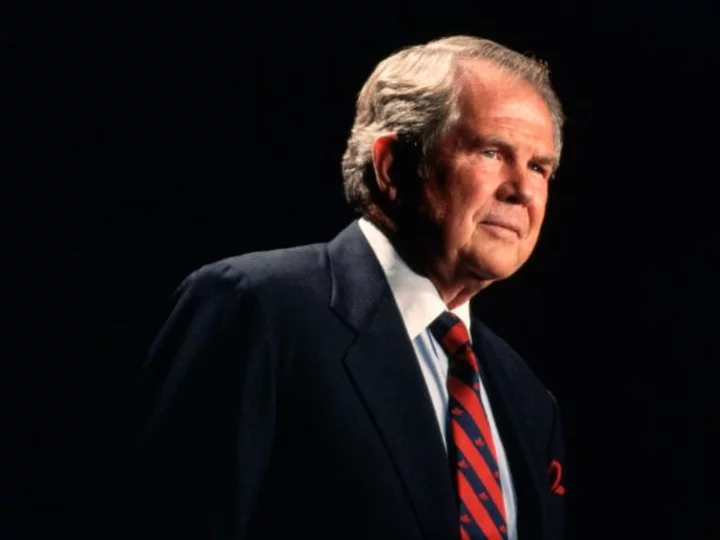
Religious broadcaster Pat Robertson has died at the age of 93
One-time presidential candidate and religious broadcaster Pat Robertson has died, the Christian Broadcasting Network said in a news release Thursday.
1970-01-01 08:00
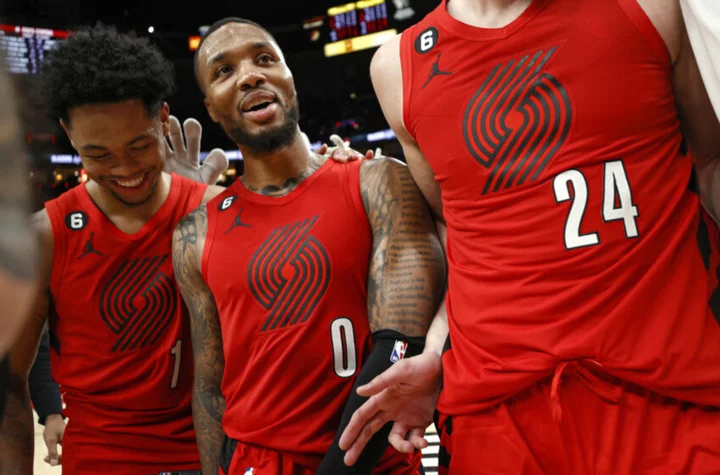
Trail Blazers 2023 offseason primer: Targets, outgoing free agents, trades, draft needs and more
The Portland Trail Blazers are eager to contend with Damian Lillard, but should the team think about hitting the reset button sooner than later?The Portland Trail Blazers entered last season with a healthy Damian Lillard and title aspirations. Lillard did his part: 32.2 points, 4.8 rebounds, and...
1970-01-01 08:00
